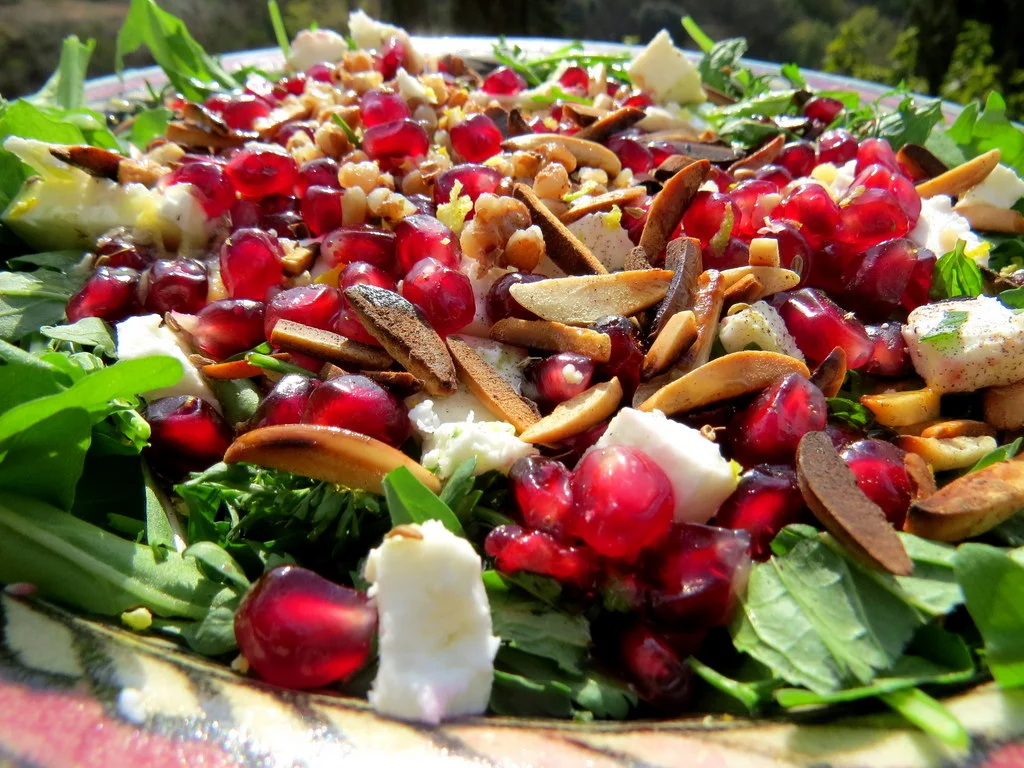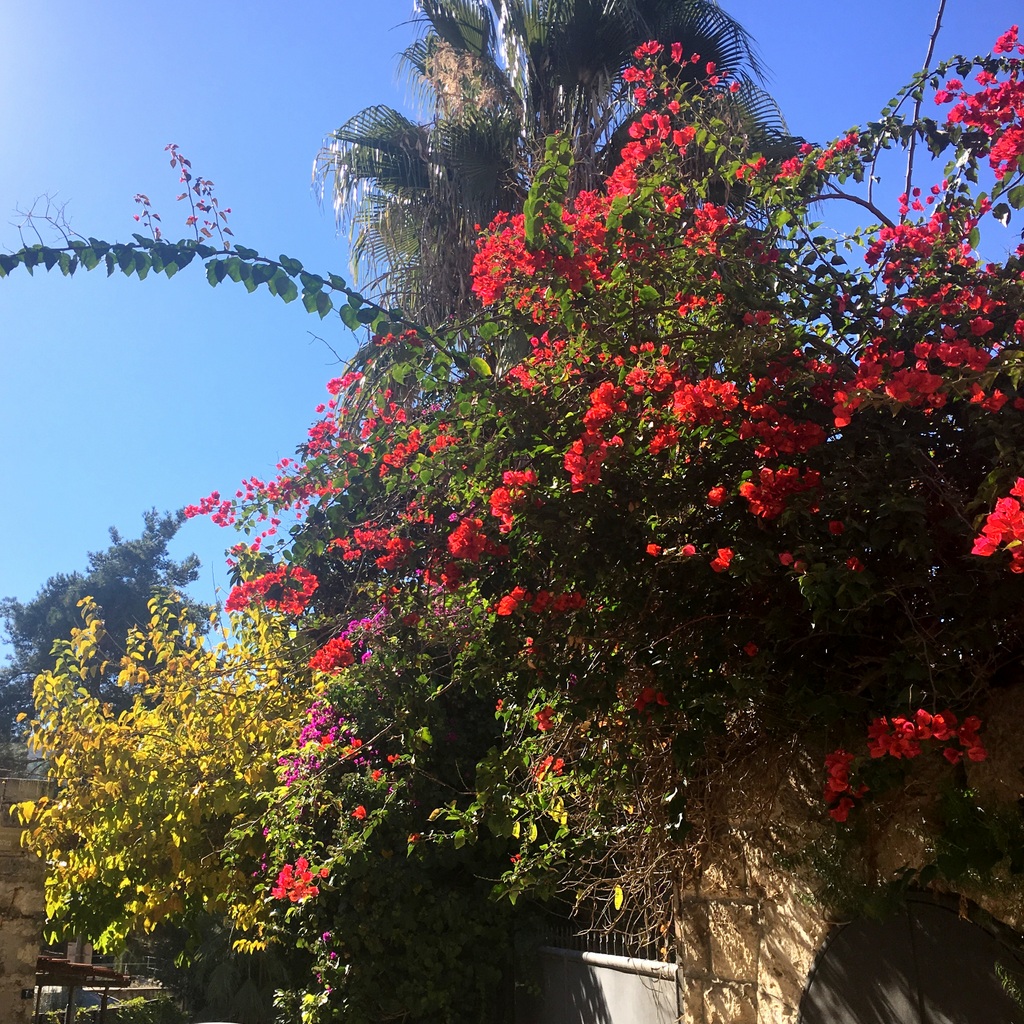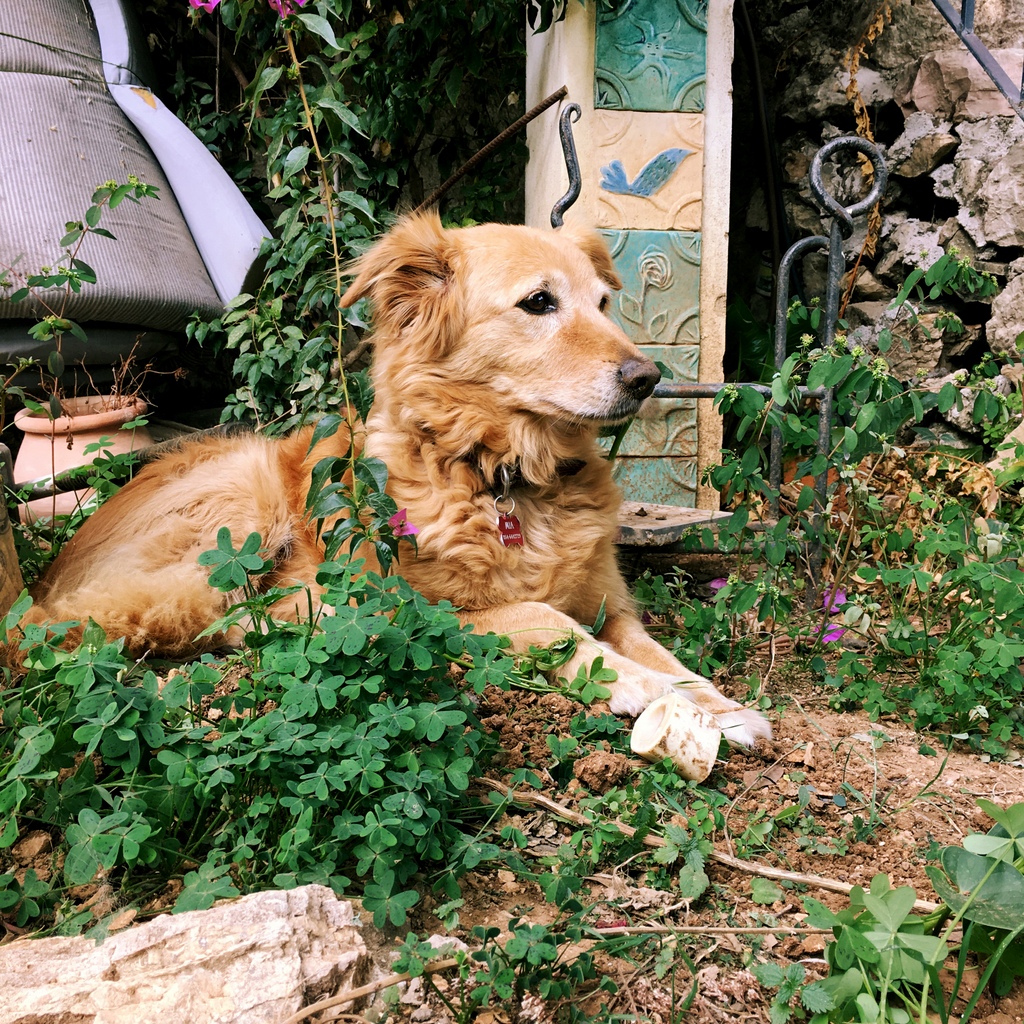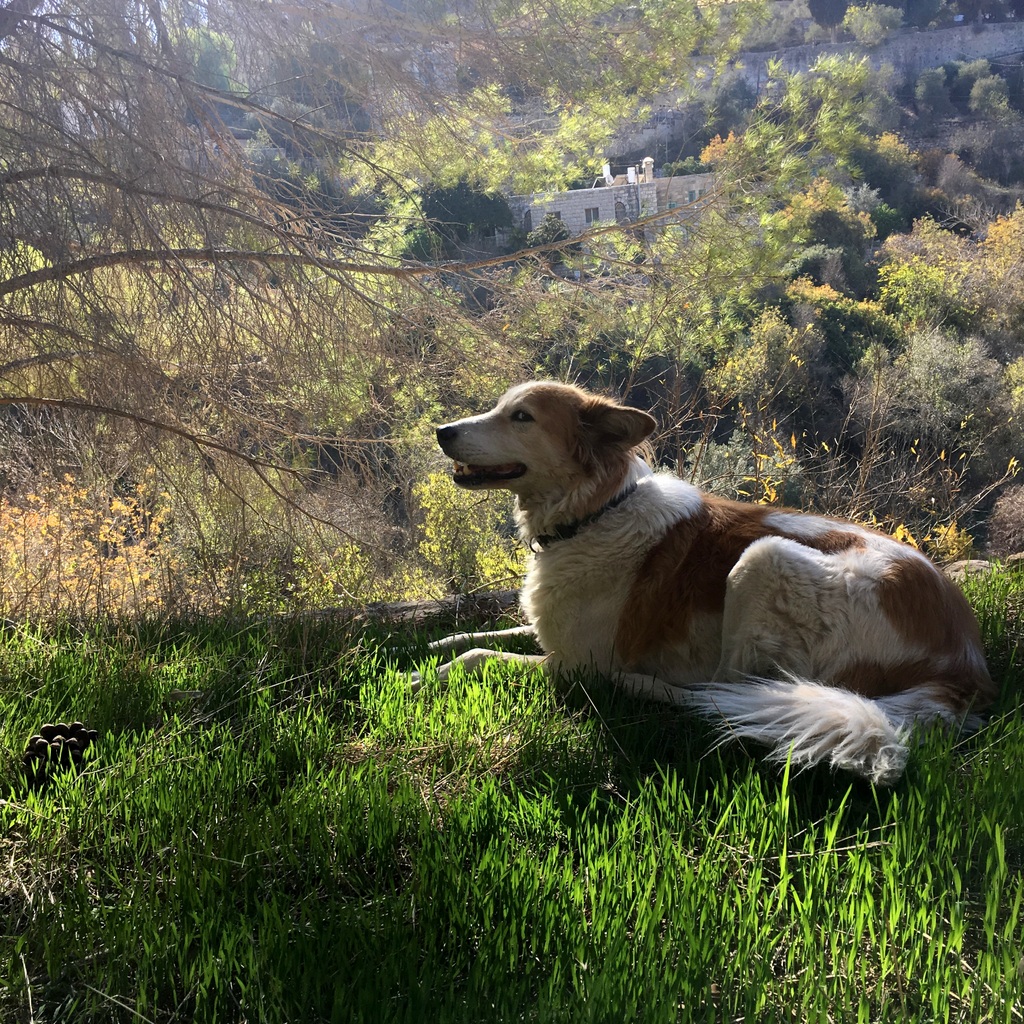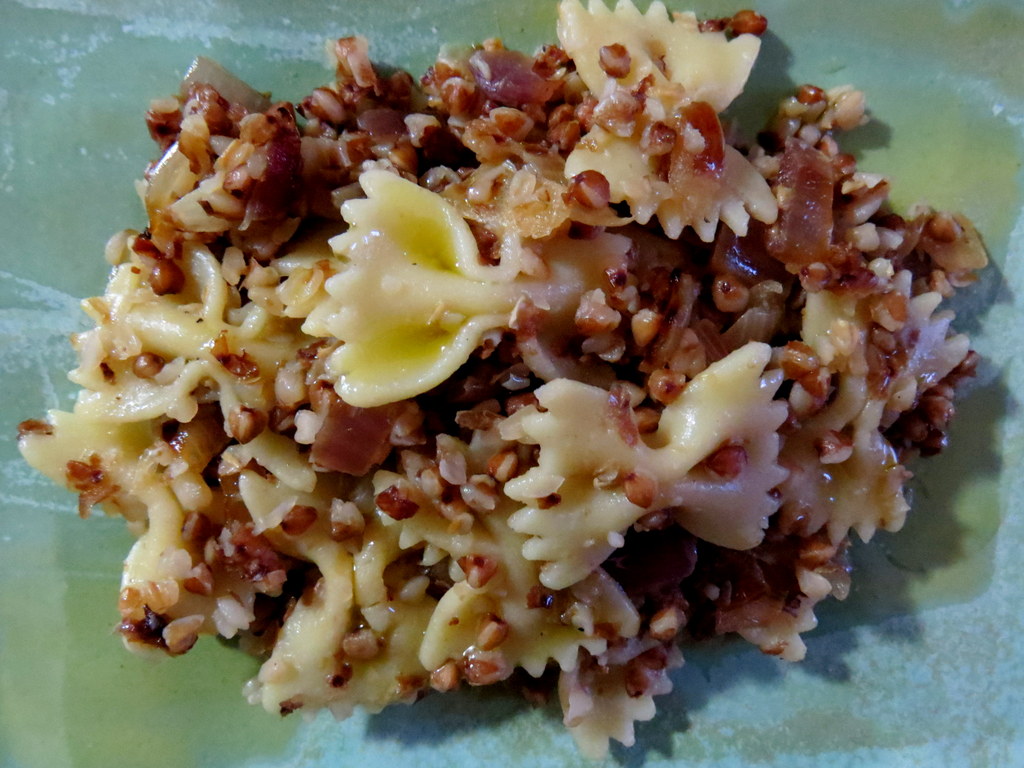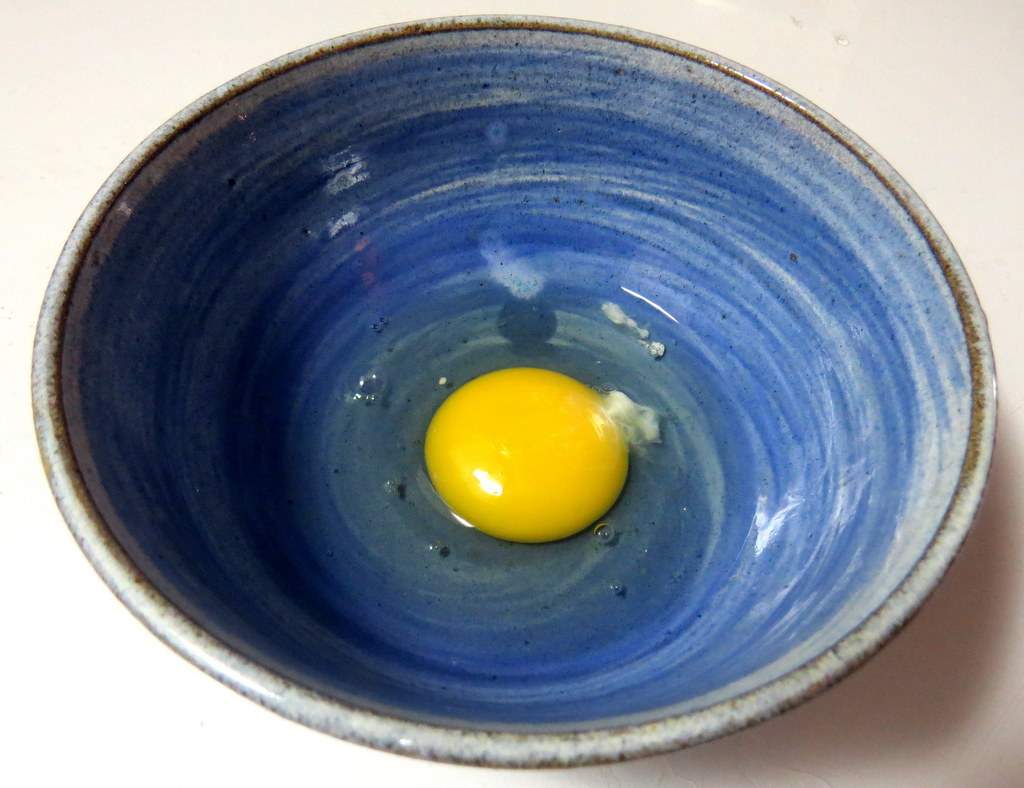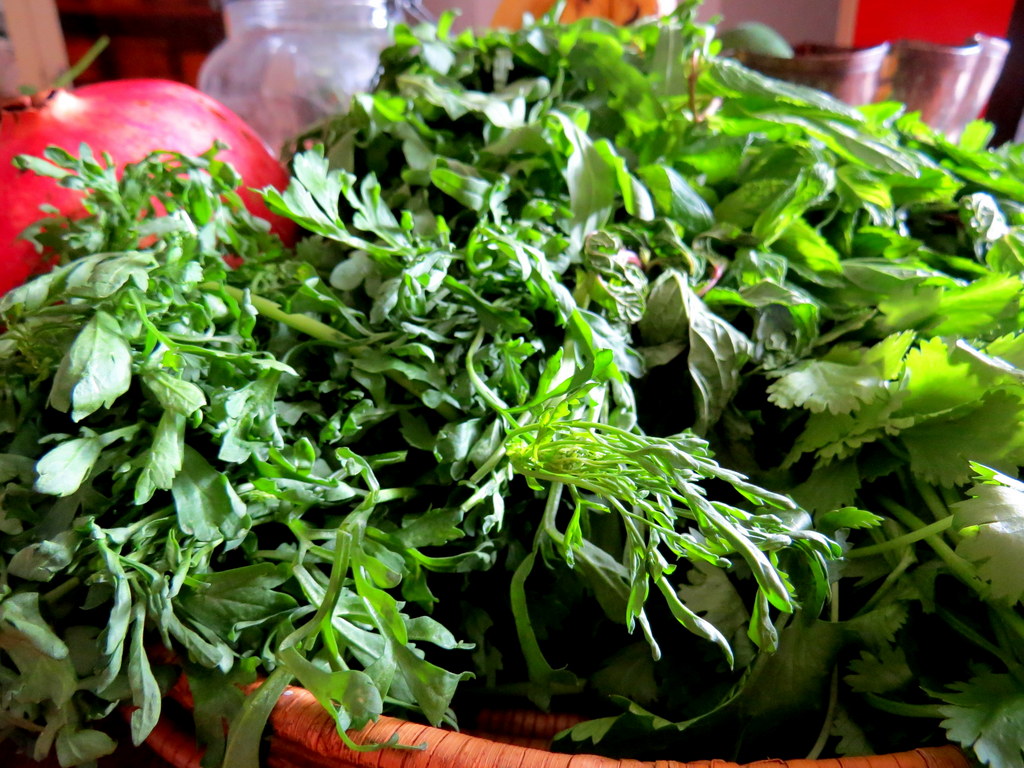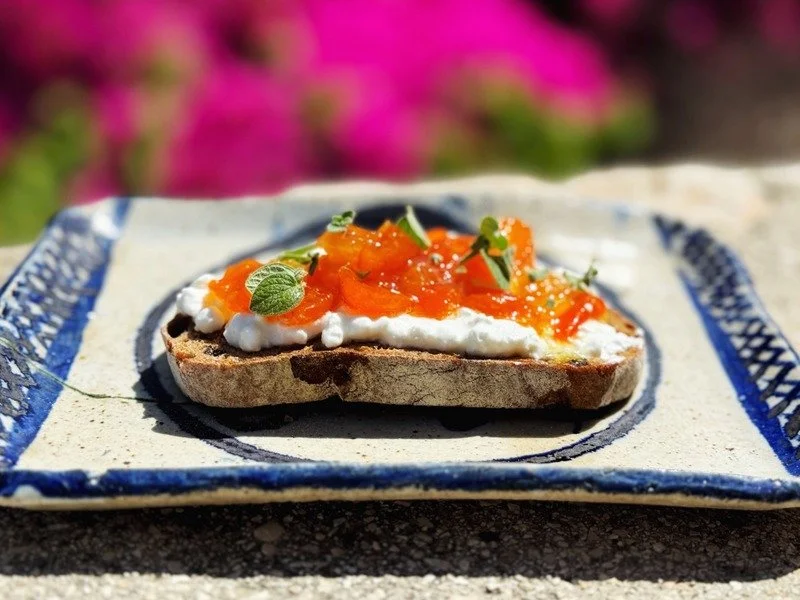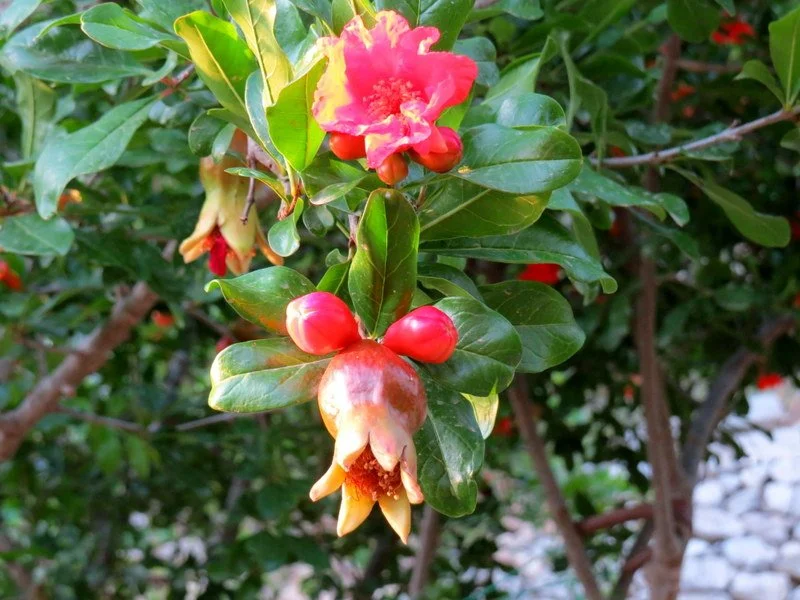WINTER
It’s the Jewish festival of Hannukah this week, and it is usually cold and wet by this time in Israel. But so far, there’s been very little rain – so little that authorities are beginning to talk in worried tones about a drought. (It only rains in winter here, the rest of the year is dry, so these short months are the sole opportunity for rainfall… )
Doesn't look like a winter sky...
JERUSALEM
As a person who walks dogs, rather than a concerned citizen of the world, I have to say it’s a pleasure to live through these short warm days, an extended autumn. That’s true even with all the Trump generated news that has delayed this blog post!
Going live from the Damascus Gate in Jerusalem
KASHA
Hannukah is generally a time for recipes using oil. But not this week! Instead, it’s a health food, even a superfood.
Kasha, or buckwheat, is on almost every list of top 10 superfoods. It has a distinctive taste, which some people don’t like, but it’s a grain I learnt to love when I lived in Russia. There it was breakfast. Its nutty taste and soft texture lend themselves well to porridge.
Kasha often features in Russian sayings. “You can’t make kasha with him,” denotes an encounter with a hostile enemy, since in Russia, you can make kasha with pretty much anyone. “You can never ruin kasha with butter,” means the more of something you add, the better it will get. “Cabbage soup and kasha, that’s our real food,” needs no explanation!
So it’s healthy and for Russians and their descendants - including Jewish Russians and Eastern Europeans - it’s the taste of home. (See this website for more Russian-ness.)
GRAIN
There are 2 types of kasha you can buy. Raw, where the buckwheat groats are beige in colour, or roasted, where they are brown. I've always bought it pre-roasted ie brown and that’s the one I prefer.
To prepare your grains, place them in a sieve. Shake to get rid of the chaff. Pick over and remove any that have become discoloured.
The ratio of water to grain is 2:1 ie 2 cups water to 1 cup buckwheat. You can use less water, say 1 – 1 ½ cups water if you buy the roasted kasha. That way it won't get too soft.
Breakfast Kasha
This is the absorption method for preparing many grains, including buckwheat (and also the way they do it in Russia).
1. Choose a pot with a tight lid.
2. Take 1 cup of kasha, which you’ve prepared as above, and toast the grains quickly in the pot, over a medium heat. Shake frequently. It’s only a for minute or two – use your nose as a guide. When they smell toasty, stop. Don’t leave them or they will burn!
3. When that’s done, add 2 cups of boiling salted water – less if you are using brown roasted kasha. (See note above.)
4. Make sure the water comes to the boil again, then reduce the flame to the lowest heat and put a cloth kitchen towel under the lid to keep the steam in. Leave for 15-20 minutes, or till the water has been absorbed. Turn off and leave covered for another 10-20 minutes. Fluff with a fork. It is now ready for whatever use you want to make!
5. Russians serve it with a butter pat mixed in to melt and cottage cheese (tvorog) on top. For a full breakfast, top with an egg, fried or poached, and a piece of sausage.
If you are making breakfast kasha in Russia, many people add the boiling water, cover the pot with a kitchen towel, then wrap the pot in a blanket, and leave standing overnight. When you wake up, the water will be absorbed and breakfast is ready.
RECIPES
We have 2 recipes this week, the traditional Jewish way to prepare Kasha, and a modern Israeli take.
Kashsa Varnishkes is the traditional dish where kasha is served with pasta bow ties and fried onions in a meal that’s sturdy, healthy and inexpensive. I was reminded by is someone I’ve met through our Food is Love Facebook page – take a bow, Varda Springer Kline! - that we hadn’t made it here. So here goes:
Kasha Varnishkes
Serves 6
INGREDIENTS
- 3/4 cup kasha - roasted buckwheat groats
- 1 egg
- 3 tablespoons shmaltz, butter, or vegetable oil
- 2 onions, roughly chopped
- 1 cup bowtie pasta
- 2 cups boiling water or chicken stock
- Salt and pepper – 1 teaspoon salt and ½ teaspoon pepper
METHOD
1. Beat the egg. Put kasha in a medium saucepan along with the egg and stir off the heat, until every grain is well coated. When that’s done, place on stove and cook over medium heat, stirring with a wooden spoon until the egg becomes invisible / begins to dry and the grains separate – 3-4 minutes. Once it smells toasty, it’s ready.
2. Pour boiling water or chicken stock over the kasha. Add ½ teaspoon salt and ¼ teaspoon pepper and stir. Cover and cook over low heat for 10 - 15 minutes, or till the kasha has absorbed all the liquid. Remove from heat.
3. While the kasha is cooking, in a separate pot, add the pasta bowties to boiling water and cook till done. (About 10-12 minutes, but following the instructions on the pack is best.) Drain and set aside
4. While the grain and the pasta are cooking, heat the oil (or shmaltz) in a frying pan and cook the chopped onions until they are brown and caramelised.
5. Everything should be ready at about the same time. Add the kasha and pasta to the onions, mix, and add remaining salt and pepper. These are your only spices, so you may feel you need more than usual.
NOTE ON FAT
In Europe and Russia, this dish was made with shmaltz ie rendered chicken fat.
Like a lot of traditional foods that had been pushed aside, such as pickled vegetables, rendered fat is having a moment. It falls in with butter, and other animal fats, which seemingly are no longer as unhealthy as we were once told. Plus it is less wasteful, as you make shmaltz from the chicken’s skin and fat, instead of throwing them away. As well as being frugal, in taste terns, shmaltz has a lot to offer. I'm including a few recipes for making shmaltz here, some add water and some don’t, some add onions, some don't. I haven’t tried any of them yet. Too much news! If anyone does, please let me know.
VERDICT
This is comfort food par excellence, a tasty simple dish, cheap and easy to prepare, (though it does use rather a lot of pots!) and in the end, not unhealthy. If you serve it with a salad, it makes a good weeknight dinner. You can make it vegetarian by leaving out the chicken fat or stock, or vegan by leaving out the eggs. Even though I didn't grow up with this, I would definitely make it again.
SALAD
One of the great pleasures of making the Kasha & Rocket Salad is visiting the markets to buy the fresh greens. The bitter leaves are balanced with herbs -- lots of both! I like rocket (arugula) and another local bitter leaf called rashad, which is a little like watercress. But use whatever grows locally.
Kasha & Rocket Salad
Serves 6 as a side dish
- ½ cup roasted kasha, or buckwheat groats
- 1 large bunch rocket (arugula)
- 1 bunch another bitter green – watercress, amaranth greens, or ‘rashad’, the local green here in Jerusalem
- 1 large bunch parsley or coriander
- 50 g good quality sheep’s feta
- Grated rind of ½ lemon
- Seeds from ½ pomegranate
- 50g slivered almonds
DRESSING
Olive oil, salt and lemon juice.
METHOD
1. Steam buckwheat according to the instructions for breakfast kasha above. I like my kasha ‘al dente’ so I use less water. If it's pre-roasted, then a 1:1 ratio works well ie 1 cup water per 1 cup buckwheat grains. When the grain is done, leave to steam with a towel under the lid for 10 minutes. You can do this step ahead of time.
2. Rinse all the greens and herbs and chop them coarsely. If you are using parsley, it’s the exception, chop that finely. Add the cooled kasha grains and mix. Lay on your serving plate. Grate or crumble feta cheese on top. Then sprinkle lemon rind, pomegranate and almonds.
3. Just before serving, pour over dressing.
VERDICT
This has become one of my favourite winter salads as the tastes are bright, fresh, and sharp and it is very more-ish. The bitter leaves, sour lemon, salty cheese and the sour-sweet pomegranate mix together to wonderful effect. The nuts and seeds add crunch and the kasha makes it a meal. You feel healthy and satisfied as you eat it. Definitely make this!
POETRY & MONEY
At the end of November, Israel issued new banknotes and for the first time in decades, they featured women. The new 100-shekel note features Israeli poet Lea Goldberg (1911-1970).
Israeli author, translator and poet, Lea Goldberg.
After migrating from Lithuania, Goldberg published 9 volumes of poetry, was one of the most popular Israeli children’s authors, and was also a translator. Her Hebrew translation of Tolstoy’s War and Peace is considered her magnum opus. She never married or had children, unusual in this society.
Local journalist Josie Glausiusz wrote about this sad, beautiful poem, one of the last Goldberg wrote. The final poem in her final book, it's about self-knowledge and the wisdom that comes with age. It puts me in mind of the wonderful grandmothers in this project.
Toward Myself
The years have made up my face
with memories of love,
adorned my head
with light silver threads
and made me beautiful.
Landscapes are reflected
in my eyes,
the paths I trod
have taught me to walk upright
with beautiful, though tired, steps.
If you should see me now,
you would not recognize
the yesterdays you knew.
I go toward myself with a face
you looked for in vain
when I went toward you.
(Lea Goldberg, 1964. Translated by Robert Friend)
The new 20-shekel note has a picture of Rachel Bluwstein (1890-1931) known in Israel simply as Rachel the Poetess. Born in Russia, Rachel visited Palestine in 1909, aged 19, on her way to Europe, and decided to stay.
'Rachel the Poetess'
Unlike Lea Goldberg, she had not studied Hebrew intensively before coming. She and her sister learnt the language by listening to children chattering to each other in kindergartens.
It turned out that Rachel had contracted tuberculosis in Russia, a disease which was incurable in the early years of the 20th century. It killed her aged 40. She too was single, and childless. It is relevant to the heartbreaking poem below.
Barren
Had I son – a little boy
with black curls and clever
whose hand I could hold and stroll through the park
a little boy.
Uri, I’d call him, my Uri,
a short name, lucid and soft
a dewdrop of brightness
for my dark child
Uri! I’d call …
Yet I will weep like Mother Rachel,
yet I will pray like Hannah at Shiloh
yet I will wait – for him …
(Rachel, 1930. Translated b Vivian Eden)
Israeli singer Achinoam Nini has written music for these sad words. You can listen to it here:
And for a father’s blessing, 20 years after parting from him – watch the beautiful short film here, about Klara, a French Holocaust survivor. It is both moving and liberating. And then eat some kasha.

